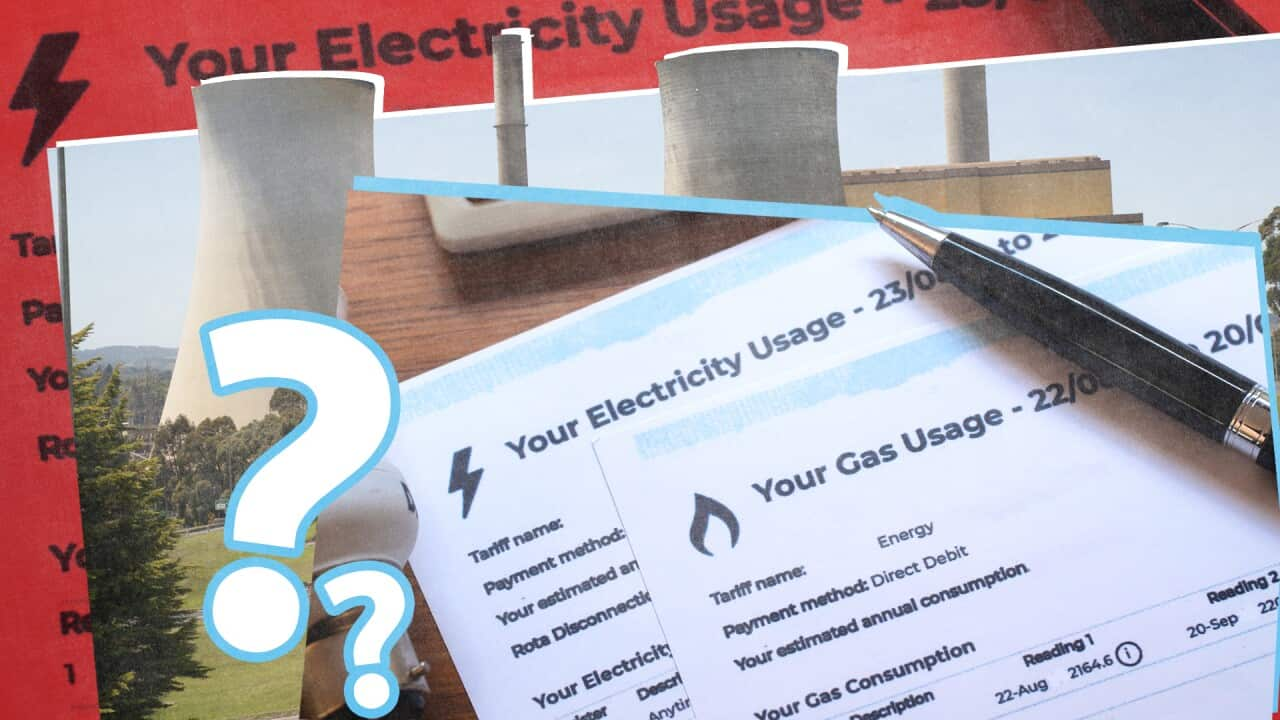Energy and Climate Change Minister Chris Bowen says climate change poses a “real and substantial” threat to Torres Strait Islander communities ahead of a visit to meet with traditional owners about their concerns for their Country.
Mr Bowen will on Wednesday begin his visit to Horn Island, Thursday Island and Poruma Island off the northern tip of Queensland, to engage in the listening tour.
The minister responsible for the government’s climate change policy fronted the National Press Club on Wednesday, where he revealed his trip to the Torres Strait.
He was questioned by SBS News about what threats climate change could pose to Torres Strait Islander communities over the next decade.
“Real and substantial,” he said.
“We’ve heard it from them direct ... but I want to go see it. I want to walk their Country with them and hear it from them.”
they are on the front line facing the impacts of climate change, and said urgent action is needed to ensure they can remain on their islands.
This has included specifically warning about the threat posed by rising sea levels, coastal inundation, erosion and investment in infrastructure such as seawalls in response to these challenges.

There are concerns the Torres Strait Islands are on the front line of the climate change threat. Source: Shutterstock
“It’s important for us to go there,” he said.
“These are Australian citizens, our brothers and sisters at the front line more than anybody in dealing with the impacts of climate change.
“They deserve to have a federal government that listens to them.”
Mr Bowen was also asked by SBS News about his intended response - what he intended to offer the people of the Torres Strait, what the infrastructure cost would be and how he expected the islands to change over the next decade.
He responded that he would be “better placed” to answer those questions when he returned from the trip.
“That’s why I’m going - we’re going to listen very genuinely,” he said.
“I really genuinely want to hear from traditional owners in a meaningful way about what they are dealing with, what they are worried about.”
Mr Bowen said he had held meetings with representatives of the Torres Strait Islander community virtually and in person but said he hadn’t “been on their Country.”
“I’m going as a sign of respect to listen to them.”
Energy minister spruiks energy 'transformation'
Mr Bowen also said Labor's plan to transform Australia's power market was ambitious but achievable, alongside concerns about rising electricity costs.
He said upgrades to Australia's energy system and a national electric vehicle policy would complement the government's emissions reduction agenda.
A commitment to “carefully designed, ambitious but achievable” policies would ensure the government's approach was “credible and substantive”, he said.
But a contentious capacity mechanism proposed by the government to guarantee energy supply will not undermine emissions targets or be used as an excuse to keep coal and gas generators operating.
“It will be used as a genuine safety net as we undertake this very significant transition in the economy (and) we need that safety net,” Mr Bowen said.
“It will be consistent with our emissions-reduction targets and it will support new technologies, new generation and storage.”
A proposed climate change bill to be introduced at the end of July will legislate a 43 per cent emissions reduction target by 2030 and also require the minister to report annually to parliament on Australia's progress.
The bill will be “simple, yet powerful” and the annual report would force the government to be transparent and require the Opposition to share its own views on the issues, Mr Bowen said.
The government remains open to working with independents on the crossbench who took a bigger emissions reduction target to the election.
“If there is a good idea which improves, not undermines, the bill I'm happy to hear it and work with it,” the minister said.
The capacity mechanism proposal has previously been criticised by industry groups for not addressing the existing issues in the energy market and potentially delaying the transition to a system with lower emissions.
But even if the climate policy is not supported in parliament, the government will enact it.
“We regard legislation as best practice ... if the parliament doesn't wish to pass it, we will simply get on with the job as we have already started to do,” Mr Bowen said.
Improvements to Australia's transmission grid can begin without legislation and he said the government's plan would help get renewable energy to where it is needed across the country.












